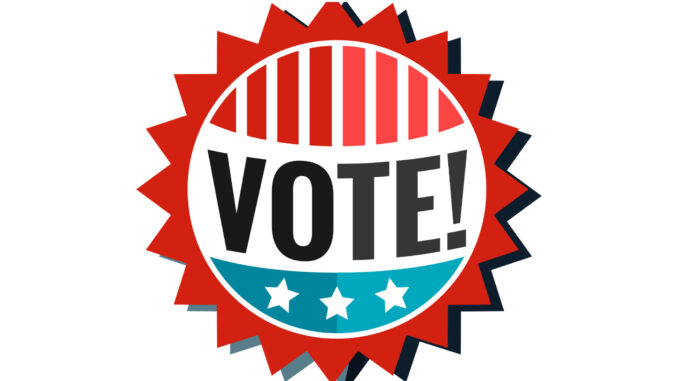
RIVER VALE, N.J.—District officials and professionals including principals, teachers, architects, bond counsel and a school psychologist urged residents to approve a $42.5 million school improvements referendum, including $35.7 million in bonds, during a virtual school forum April 6.
[Based on district information on the borrowing component, we had reported on a $35.7 million referendum. The greater figure, including projected state aid and a contribution of capital reserves, represents the overall amount voters will consider. —Ed.]
The special election is Tuesday, April 20, from 8 a.m. to 8 p.m. District officials urged residents visit the referendum website at rivervaleschools.com/vote for complete information.
The site includes a breakdown of the three ballot questions. Also, residents can view the full virtual forum held at rivervaleschools.com/youtube to hear details on the projects.
A copy of the public notice can be found at njpublicnotices.com.
The referendum’s three questions address building improvements including new roofs and entryways, high-efficiency air conditioning in schools, and adding wellness centers to the two elementary schools.
If each of the questions is approved, the average taxpayer will pay about $148 yearly over 25 years, though that amount will likely be reduced as 249 housing units under construction now at the Fairways at Edgewood development join local tax rolls.
A public notice published April 7 by Bergen County’s Board of Elections summarizes the referendum’s fiscal details.
“If all three bond proposals are approved by the voters at this election, the Board of Education will be authorized to undertake school capital projects for a total cost of $42,499,585, including $6,770,000 from capital reserve, and to issue bonds in the total principal amount of $35,729,585 to fund the projects. The aggregate amount of the final eligible costs of the projects approved by the Commissioner of Education is $36,629,628 (with $15,864,808 allocated to Holdrum Middle School, $8,867,235 allocated to Roberge Elementary School and $11,897,585 allocated to Woodside Elementary School),” states the notice.
“The proposed improvements include $1,618,760 (with $1,358,500 allocated to Holdrum Middle School, $110,110 allocated to Roberge Elementary School and $150,150 allocated to Woodside Elementary School) for school construction elements in addition to the facilities efficiency standards developed by the Commissioner of Education or not otherwise eligible for state support,” it adds.
District officials stressed April 6 that this year is an optimal time to bond for the improvements, noting the district will get about $10 million in state aid—nearly 30% of the bonded amount—and reduce the debt further by using $6.7 million in capital reserve funds to reduce property tax impacts.
Architect Stephen Secora, of LAN Associates, provided a school-by-school summary of improvements and said major work would not likely begin before spring 2022, although some smaller projects could begin this summer. He said most improvements would be completed by the end of 2024. Secora noted all schools’ roofing was “about at the end of its useful life.”
Appeals for improvements; residents’ questions
Much of the two-hour forum April 6 featured district-hired professionals as well as testimony from administrators, teachers and support staff listing reasons to vote for what they called much-needed and vital improvements, such as additional corridors, more classroom space, and air conditioning that will filter bacteria and allergens and keep classroom temperatures conducive to learning.
About a dozen residents asked questions during the forum, some emailed questions and some called in and some asked questions twice.
Resident Cheryl Berkowitz called to confirm that the proposed air conditioning units would filter out allergens. Secora told her that rooftop units being proposed had a higher MERV [minimum efficiency reporting value] rating, which means they more effectively remove dust, allergens and certain contaminants.
The district, he said, already had made improvements by adding needlepoint bipolar ionization systems to existing air conditioning units. The referendum website notes the filtration system will be added on all new air conditioning equipment.
Asked why the district could not install window units, he noted that window air conditioning units are mainly for residential use and “just recirculate air” in a room and do not bring in any outside air or efficiently filter the air.
One resident wondered why air conditioning, said so important, was presented as a separate referendum question. Board President Lorraine Waldes said that air conditioning was left as a separate question to give voters a choice, although she said “it is very important and we hope that all three questions pass.”
Waldes said that 20 years ago, the referendum did not pass that included air-conditioning upgrades. She noted that question #1 included necessary improvements such as roofing replacement, and school facilities upgrades including new classroom space and covered canopies.
Another resident asked whether the wellness centers proposed in question 3 will help reduce the stigma about seeking mental health services.
Cristine Casbar, a school psychologist, said establishing the wellness centers at both Woodside and Roberge elementary schools “adds credibility and importance” to mental health and noted that students may feel more comfortable by doing yoga than talking about a problem.
Joelle DeGaetano, a social worker, said that no additional staff would be necessary to run the wellness centers, and noted that these types of spaces were “very near and dear to me” and offered students a chance to deal with anxiety and stress that only increased during the pandemic.
Waldes noted that the referendum now “really is a perfect storm” of low interest rates, state debt relief, capital reserve “savings” to be applied to the debt, and the final payoff of a 20-year school bond that ends this year.
She emphasized that the new wellness centers at both elementary schools and the middle school were critical parts of the referendum and would help the district address mental health concerns “in a very proactive way.”
